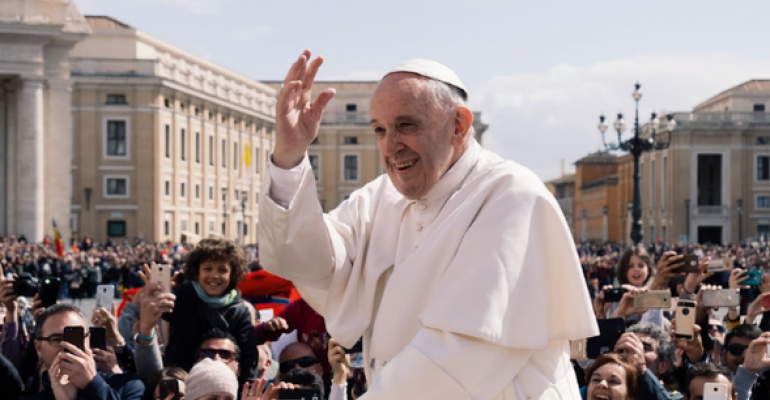
The Pope’s Evangelistic Own Goal
I must admit to dropping the evangelistic ball at that point. My friend is somewhat fitter than me, I was out of breath, and was struggling to come back with anything other than, ‘being a good person won’t keep you out of hell.’ It is always difficult to counteract what sounds like the more gracious position.
Half a mile down the road I had recovered my composure sufficiently to make a more appropriate response: “But how can you ever know you are good enough? The whole point of Christianity is about trusting in the goodness of Jesus, not in our own goodness. If it is really only about how good we are that inevitably ends up in hypocrisy and self-justification and something that is 180 degrees different from what Christianity actually is.”
When I got home I googled the Pope and found out what he had said. From the British press I could see how my friend had got the impression he had. For instance, this headline in The Independent: “Pope Francis assures atheists: You don’t have to believe in God to go to heaven.”
I then found the original article, in La Repubblica (in English translation), in which the Pope engages in “An open dialogue with non-believers.”
Read at one level, the Pope is simply involving himself in some “Keller-esque” type apologetics here, seeking to win a hearing from a skeptical audience. As the headline in the Daily Telegraph has it, “Pope Francis reaches out to atheists and agnostics.” He is also building on the teaching of the Second Vatican Council, that, “Those who, through no fault of their own, do not know the Gospel of Christ or his Church, but who nevertheless seek God with a sincere heart, and, moved by grace, try in their actions to do his will as they know it through the dictates of their conscience — those too may achieve eternal salvation” (Second Vatican Council, Lumen Gentium, 16). In fairness to Catholic dogma, Vatican II was not here teaching that there is salvation apart from Christ, or that those who have heard of Christ yet rejected him can be saved, but that any who have not heard of Christ can still be saved by Christ. I might not much like the way Vatican II approaches this, but have to recognize it is a position held (without much theological reflection) by a majority of Protestants too.
However, the Pope’s letter to La Repubblica does seem to open up an even wider road to salvation. Here is the key quote:
It would seem to me that…what you are most interested in is understanding the Church’s attitude towards those who do not share faith in Jesus. First of all, you ask if the God of the Christians forgives those who do not believe and do not seek faith. Given that - and this is fundamental - God’s mercy has no limits if he who asks for mercy does so in contrition and with a sincere heart, the issue for those who do not believe in God is in obeying their own conscience. In fact, listening and obeying it, means deciding about what is perceived to be good or to be evil. The goodness or the wickedness of our behavior depends on this decision.
My cycling buddy thought this was good news – it means that so long as we think we are being good and avoiding evil we will have no case to answer before God. But of course, it is actually terrible news, because, as I said to my friend, how can we know we are ever good enough?
If I’m cycling on my own I might think I am ‘good’. But when I cycle with someone else who doesn’t seem to notice the gradient in the same way I do, I am forced to recognize I am not good at all. If I want to believe myself good when I am not, the simplest thing is never to share a bike ride with anyone else. In a similar fashion the Pope seems to be scoring an evangelistic own goal – if all that is required to be acceptable to God is personal goodness, why tell anyone about Jesus? The logical position would be to dismantle the church!
Thank goodness that the goodness I can rely on is not my own, but that of Christ. Rather than his goodness condemning me, it saves me. His perfection, not my self-deceiving conscience, is my rescue. And that is really good news.